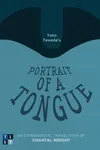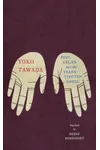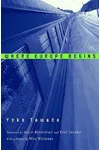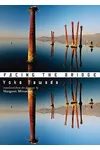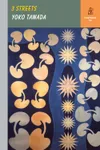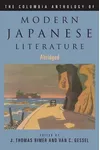Picture a Japanese storyteller who weaves surreal tales in two languages, blending dystopian visions with playful wordplay—meet Yōko Tawada! Born in Tokyo and now calling Berlin home, Tawada writes award-winning novels, poems, and essays in both Japanese and German, challenging the boundaries of language and culture. Her unique voice, infused with humor and social commentary, has captivated readers worldwide.
From dystopian gems like The Last Children of Tokyo to quirky polar bear narratives, Tawada’s work explores identity, migration, and environmental crises with a light yet profound touch. Ready to dive into her world? Let’s explore the life and legacy of this literary trailblazer.
The Making of Yōko Tawada
Born on March 23, 1960, in Nakano, Tokyo, Yōko Tawada grew up in a book-loving family, with her father working as a translator and bookseller. Her early fascination with Russian literature led her to Waseda University, where she earned a degree in 1982. At 19, she embarked on a transformative journey via the Trans-Siberian Railway to Germany, sparking a lifelong love for crossing borders—both geographic and linguistic. After moving to Hamburg, she worked in book distribution and later earned a Ph.D. in German literature from the University of Zurich, setting the stage for her bilingual career.
Yōko Tawada’s Unforgettable Stories
Tawada’s writing defies categorization, blending surrealism, satire, and linguistic experimentation. Her novel The Last Children of Tokyo (also published as The Emissary, 2014) is a haunting dystopian tale set in a post-disaster Japan, where the elderly thrive while children weaken. It won the National Book Award for Translated Literature in 2018, praised for its sharp environmental critique. Memoirs of a Polar Bear (2011) takes a whimsical turn, narrating three generations of polar bears navigating human society, earning the Warwick Prize for Women in Translation.
Her earlier work, The Bridegroom Was a Dog (1993), a quirky novella blending folklore and modernity, snagged the prestigious Akutagawa Prize. Scattered All Over the Earth (2018), the first of a trilogy, imagines a world where Japan has vanished, following a refugee’s quest for connection through a invented language called Panska. Tawada’s style—playful yet poignant—uses wordplay and neologisms, especially in German, to highlight the “artificial and magical” nature of language, often exploring themes of migration, identity, and transformation.
Writing in two languages, Tawada crafts distinct manuscripts for each, a process she calls “continuous translation.” Her German works lean toward concise essays and stories, while her Japanese novels and plays are longer, reflecting her fluid approach to genre and culture.
Why Yōko Tawada Matters
Tawada’s work resonates in a globalized world, where borders blur and identities shift. By writing in Japanese and German, she challenges the notion of a fixed “mother tongue,” offering a fresh perspective on multiculturalism. Her stories—whether dystopian or fantastical—tackle urgent issues like climate change and displacement with a blend of humor and empathy, making her a vital voice in contemporary literature. Awards like the Kleist Prize (2016) and Goethe Medal (2005) underscore her impact on both German and Japanese literary scenes.
Her influence extends beyond books, inspiring readers to question language’s role in shaping identity. As a “border-crossing writer,” Tawada invites us to embrace the strangeness of our world, making her work a beacon for those navigating cultural and linguistic divides.
About Yōko Tawada
- Birth Date: March 23, 1960, in Nakano, Tokyo.
- Key Works: The Last Children of Tokyo, Memoirs of a Polar Bear, The Bridegroom Was a Dog, Scattered All Over the Earth.
- Awards: Akutagawa Prize (1993), National Book Award (2018), Kleist Prize (2016), Goethe Medal (2005).
- Languages: Writes in Japanese and German, based in Berlin since 2006.
Snag The Last Children of Tokyo and dive into Yōko Tawada’s surreal, thought-provoking world!

